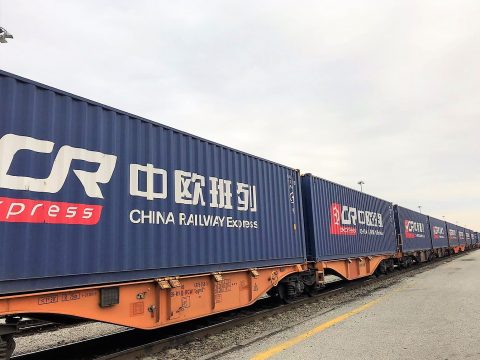The hubs of Hefei, Xiamen and Chengdu are most likely to see train departures, Jacky Yan already said last week. Representing Chinatrans International, he and colleagues are gathering all information to provide the industry with real-time possibilities to ship cargo out of China.
Chinese East coast
Indeed, the Hefei-Neuss train departed on time on 13 February, and the next one is scheduled to depart to Hamburg on 19 February. From The Xiamen, a train moves to Hamburg, Duisburg and Malaszewicze on 22, 26 and 29 February. As the latter city is located on the Chinese east coast, it is a suitable intermodal link for cargo coming from Japan or South East Asia. «We can take cross-border shipments from Southeast Asia and Japan as well», noted Luther Zengh from Chinatrans International.
This last fact is good news for companies able to shift to these markets for its product sources. «Some customers, such as car manufacturers, are changing sourcing to other parts of China or even Korea and Vietnam.That is already happening and proves to be a good solution. A car manufacturer in Europe cannot afford to wait for its car parts from China to finish a product, it will look for other sources,» said Igor Tambaca from Rail Cargo Bridge in an earlier webinar.
Chengdu and Chongqing
But also from the central hubs of Chengdu and Chongqing several trains are departing. From Chengdu to Lodz in Poland departures are scheduled on 22, 26 and 29 February. To Tilburg in the Netherlands a train leaves on 23, 26 and 28 February and to Nuremberg in Germany on 27 February.
Also from Chongqing the main hubs of Duisburg, Hamburg and Malaszewicze will be served with departures on 23, 26 and 29 February. However, cargo can only be picked up from within Chongqing city location. In Chengdu, the first mile limitations are also apparent: cargo is only picked up from within within Sichuan province.
Cancellations
In many other hubs, train departures have been cancelled until the end of the month. The train from Zhengzhou has been cancelled for the entire month of February and will resume running on 1 March. The next train from Xi’an and Yiwu is on 29 February in both places. In locked down Wuhan, no train traffic comes and out, a situation that is likely to last for a while.
The problem in most provinces remains the first and last mile transportation. Miłosz Witkowski from IFB International Freightbridge (Poland) noted that around 80 per cent of the truck drivers in China have not resumed to work as normal since the holidays. «FCL and LCL pickup from South and East China has to be seen case by case, bases on the cargo details and specific address, his China office had reported.
First mile
According to Zheng, the pick up of goods works better in South China than in the East. From places such as Guangdong, Fujian, this works OK. This region is less impacted, but haulage is much more expensive due to a lack of drivers», he writes, noting that inland train traffic from South China to Xi’an and Chengdu is another option.
«The pick up in Eastern Chinese provinces and cities( Jiangsu, Zhejiang) is extremely difficult, or not even possible. Haulage is insanely expensive due to a lack of drivers and road restrictions», he adds. Yan last week explained that truck drivers are checked by number plate, ID, body temperature and permits, with each city having different conditions for each city of origin.



